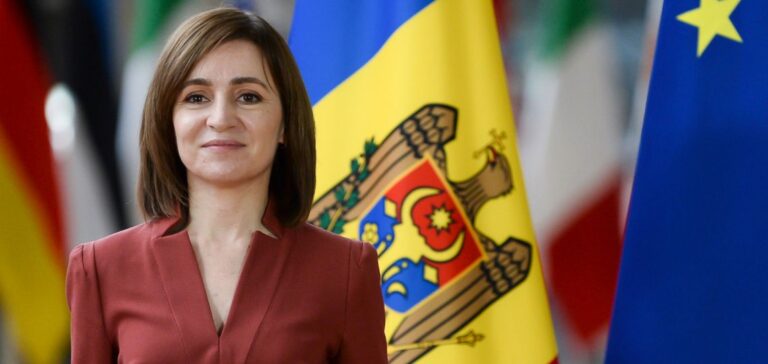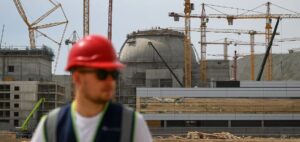Paris is hosting an international conference in support of Moldova on Monday, with the immediate aim of providing emergency aid to get through the winter, while at the same time helping the country on its way to joining the European Union.
Moldova, a small country of 2.6 million people that has been applying for EU membership since the end of June, is a neighbor of Ukraine. And it is bearing the full brunt of the consequences of the war, particularly in terms of energy, as the Russian company Gazprom has cut its gas exports to Chisinau by half.
“We must help the population to hold on,” French Foreign Minister Catherine Colonna told journalists, adding that material and financial aid will be provided on Monday.
The “International Platform of Support for Moldova” was launched at the initiative of Germany, France and Romania.
Two editions have already taken place, the first in Berlin in March, the second in Bucharest in July.
But this third meeting has a particular importance with the arrival of winter and “the blackmail of Russian gas,” said a French diplomatic source.
“Russia has cut off much of the gas it used to deliver to Moldova and, in addition, electricity exports from Ukraine are no longer possible because of the bombing of Ukrainian infrastructure,” Colonna said.
Moreover, Moldova has no gas storage capacity.
In a recent interview with AFP, Moldova’s Foreign Minister Nicu Popescu estimated the need for additional funding to cover the country’s extra energy costs this winter at 1.1 billion euros.
His government has turned to Romania to buy gas at low prices, but the country remains extremely vulnerable, he insisted.
“Our country is threatened militarily” by Russia, he said, recalling the presence of Russian soldiers on Moldovan territory, in the separatist pro-Russian region of Transdniestria.
Economically, Moldova has had to take in many Ukrainian refugees fleeing the war. “Some have left, but Moldova still has about 80,000 Ukrainian refugees” who need to be helped, Popescu said.
On Monday, 45 international delegations representing the European Union, the United States as well as international organizations and international financial institutions will be present at the conference center of the Ministry of Foreign Affairs, said the diplomatic source.
Concern “at the highest level of the State
For the French government, Moldova is a concern “at the highest level of the state,” said this source.
The conference, which will be chaired by Catherine Colonna and her German counterparts Annalena Baerbock and Romanian Bogdan Aurescu, will be closed by French President Emmanuel Macron and Moldovan President Maia Sandu.
New financial commitments should be announced after the 600 million euros announced during the previous editions.
The emergency aid will also include deliveries of generators, medical equipment and gas, the diplomatic source said.
In the longer term, Paris will have in mind to place Moldova on the path of reforms and upgrades to European standards in view of its accession to the EU, which “will take time”, warned the diplomatic source.
“It is in our interest to support and accompany” Moldova in its economic reform efforts, stressed Ms. Colonna.
The French President will discuss security issues in a bilateral meeting with Ms. Sandu.
Beyond Ukraine, France and its allies are closely monitoring developments on the “eastern flank” of Europe, which is “under strong tension”, “under direct threat from Russia”, adds this source.
We must “make sure that our eastern flank is able to withstand this pressure, because if the eastern flank gives way, it is the domino theory: we will all be weakened,” concludes the source.





















